Wage boost for low-paid workers in UK and Ireland
A national living wage came into force in the UK on 1 April, meaning that employers are now required to pay employees aged 25 and over at least GBP 7.20 (€9.02) an hour.

A national living wage came into force in the UK on 1 April, meaning that employers are now required to pay employees aged 25 and over at least GBP 7.20 (€9.02) an hour.

Eurofound’s Programming Document 2017–2020, adopted by the Agency’s Governing Board, will set the template for all of its activities over the next four years.
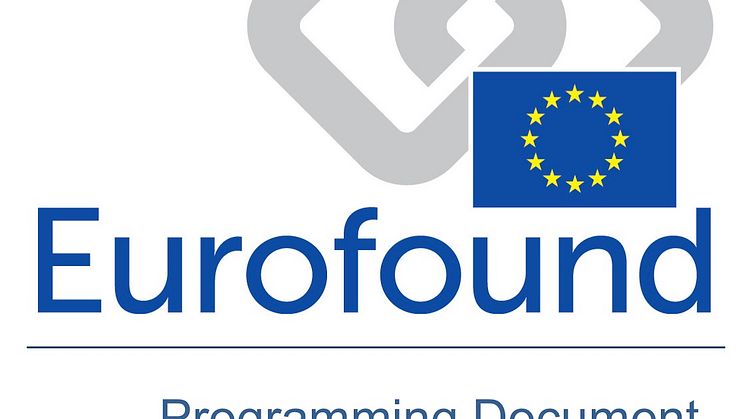
New data on the highly topical issue of preventing trafficking of labour will be presented to MEPs at a working lunch in Brussels on 27 April, with the launch of a new report from Eurofound.

This is a re-post of a blog piece published on Social Europe (SE) on 14 April.
by Sara Riso
A key priority for EU policy makers is to combat high levels of youth unemployment. Supporting young people to start a new business is increasingly regarded as a way to achieve this goal. And yet the understanding of what drives the success and failure of youth entrepreneurship policies remains incomp

(Dublin, Ireland): Many start-up support schemes for young people have limited resources, are isolated from broader youth employment policies, and are not assessed from a long-term perspective. Understanding what elements of start-up support work and how interventions can be improved is essential if youth entrepreneurship policies are to be effective for young people. This is according to Eurofou
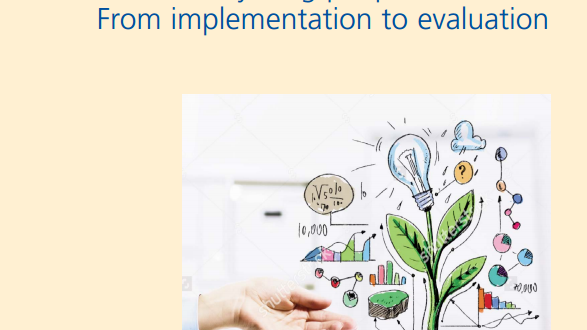
In this blog piece Eurofound Research Officer Jorge Cabrita looks at the key role of collective bargaining in establishing EU working time standards. This blog is a re-post from Social Europe, to view the original click here.
Nowadays we all know that long or excessive working hours may have serious negative impacts on a person’s health and wellbeing. Eurofound‘s new report “Working time devel

(Dublin, Ireland): Working time has remained relatively stable in the 21st century but socio-demographic challenges and the ubiquitous nature of new technologies may see significant changes in working time in the near future, according to a new report from Eurofound, the EU Agency based in Dublin. Working time developments in the 21st century reveals, for the first time, the development of worki

More than 1 in 10 employees in the EU are employed on temporary contracts, but a majority of them would prefer a permanent contract. Temporary contracts help employers to manage their labour demand, but there are downsides for employees, such as job insecurity and lower pay.
Temporary employment has been rising across many European countries for at least three decades. This is largely the resul

(Dublin, Ireland): Small and medium-sized enterprises that are largely young, innovative, internationally-active and run by skilled managers are driving significant job growth across the European Union. But research from Eurofound highlights that while SMEs were responsible for a massive 71% of employment growth in the non-financial business economy in 2014, there is urgent need for further tailor
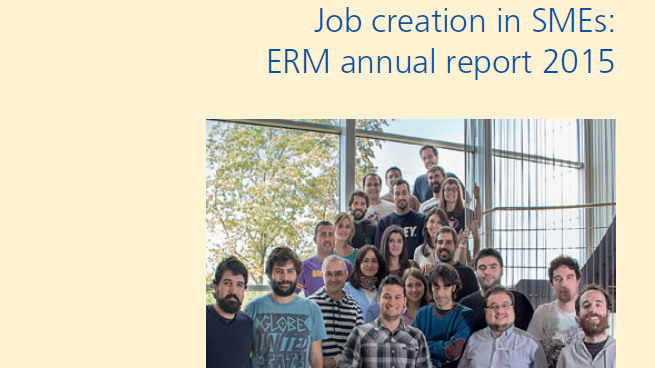
Eurofound has published a new article on the statutory minimum wage levels in Europe. This article provides an overview of the minimum wage rates as of 1 January 2016, explains how they were set, and presents relevant discussions on minimum wages at national level.
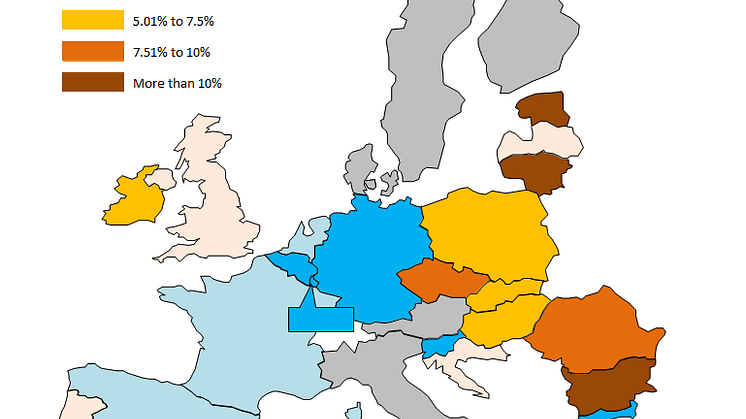
In this blog piece Daphne Ahrendt, Research Manager at Eurofound, analyses the new Families in the Economic Crisis report. She explains how the shift towards means tested support in Europe could be cutting off vital resources for struggling families.

Despite a return to economic growth, lone-parent families and large families with three or more dependent children face significant difficulties throughout Europe. In some countries more than eight out of ten lone-parent families are at risk of poverty or social exclusion.
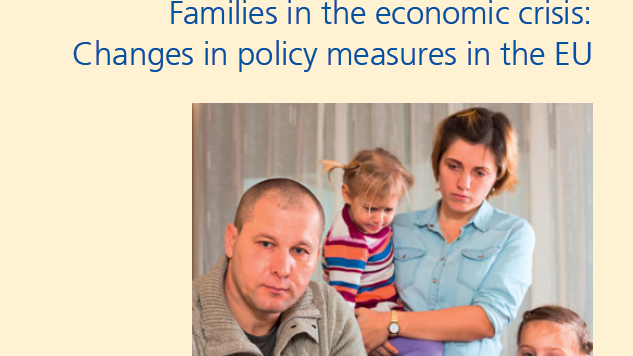
Eurofound has been doing extensive work on the issues of mobility and migration. This blog gives a brief overview of the different aspects of EU mobile workers, posted workers and third-country migration, as well as a preview of our upcoming research.
Free movement in the EU
All citizens of EU Member States are entitled to live, work and study in another Member State. The right to free movem
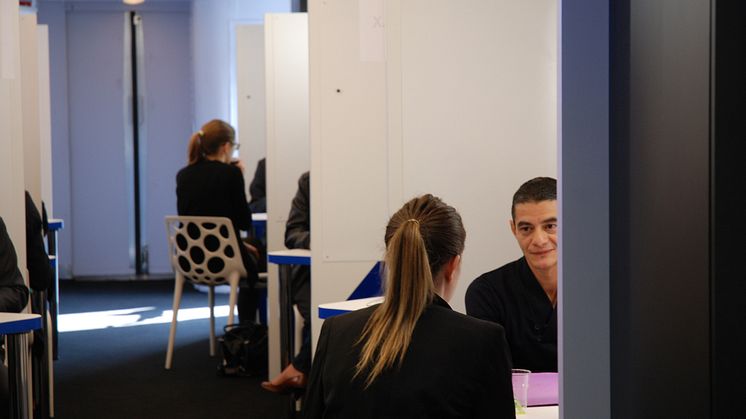
Eurofound launches report that analyses the use of various social services and benefits by intra-EU migrants and shows that the ‘welfare magnet’ hypothesis - that EU mobile workers are coming from new EU Member States to older Member States in order to access benefits - is essentially untrue.
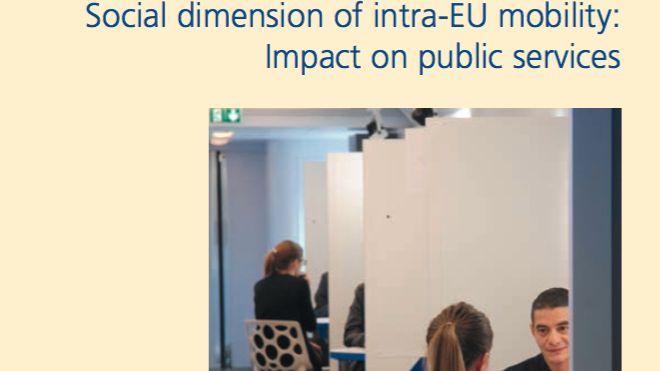
Despite increasing sophistication of work organisation and the development of ICT tools with the aim of making the workplace more efficient, long working time continues to be a fact of life for many workers, according to the last findings on working conditions in Europe from Eurofound. To download the report go to http://bit.ly/Resume6EWCS.
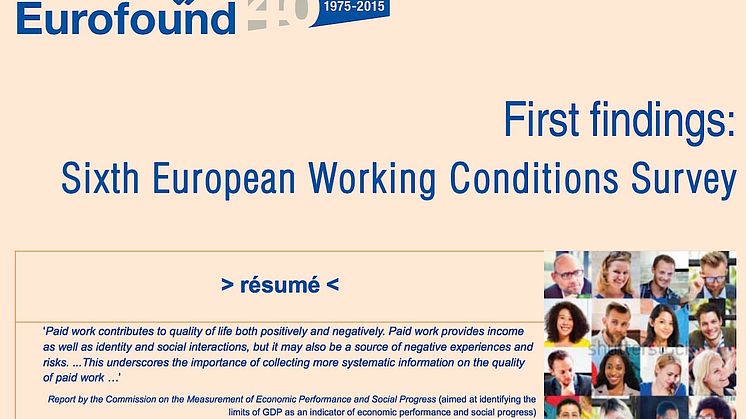
The first findings from Eurofound’s 6th European Working Conditions Survey presents a diverse picture of Europe at work over time across countries, occupations, gender and age groups. It was presented for the first time today at a joint high-level event with the Luxembourg EU Presidency.

Despite the ongoing focus on small and medium-sized enterprises (SMEs) by policymakers and academics little is known of the underlying drivers of successful job creation in SMEs. In an effort to close this knowledge gap, Eurofound carried out comprehensive research looking at SMEs across the EU28. These are the first findings, the full report will be available early in 2016.
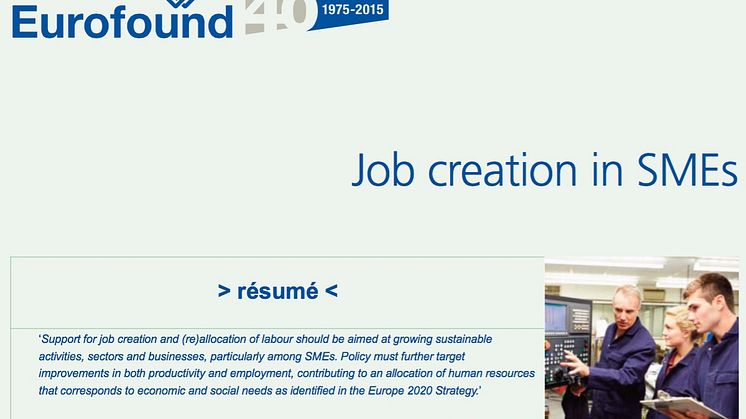
A Memorandum of Understanding and Seat Agreement between the Government of Ireland and Eurofound was signed today by Dara Murphy, T.D. Minister for European Affairs and Data Protection and Juan Menéndez-Valdés, Director, Eurofound.
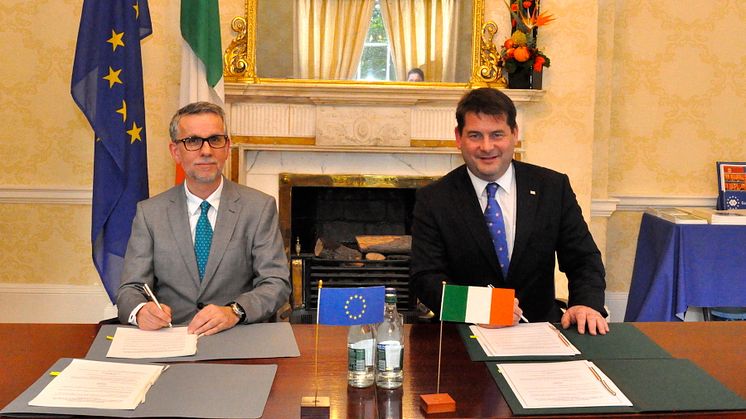
The Developments in Working Life in Europe 2014 annual review, which is part of a series of annual reviews published by Eurofound, shows that Europe is undergoing significant changes in terms of its economy, industrial relations and working conditions. Although progress is being made in all three areas, the enduring economic crisis has made this progress both fragile and unequal.
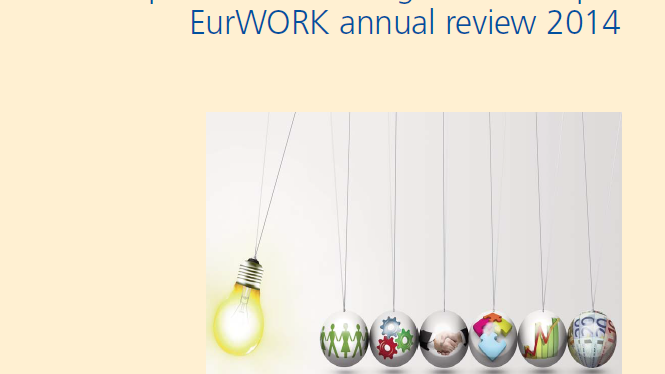
Eurofound’s new report 'Social inclusion of young people' gives an in-depth analysis of early Youth Guarantee implementation and reviews policies for social inclusion and participation in several Member States, and provides recommendations as to how to improve the levels of social inclusion of young people across the European Union.
